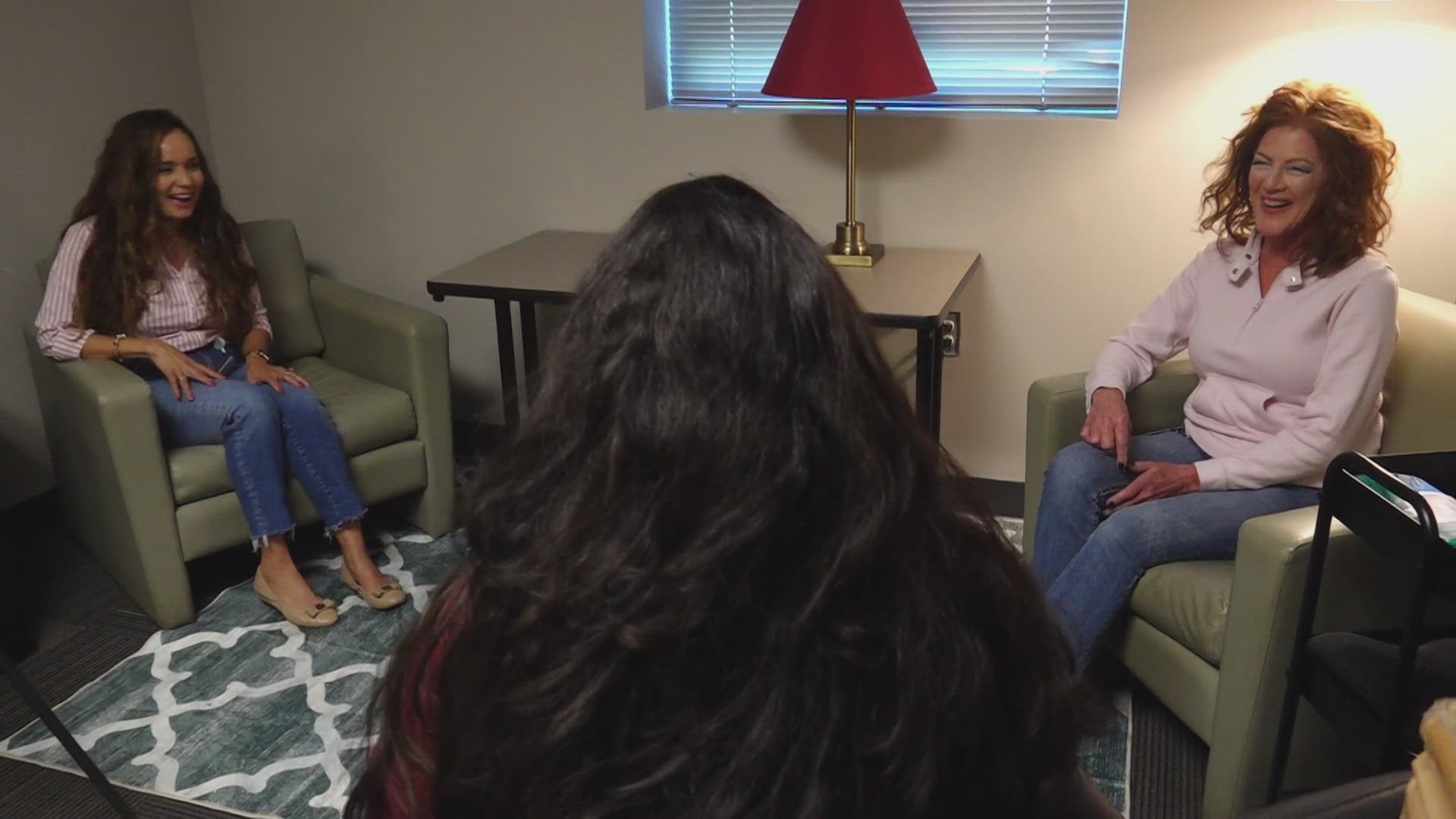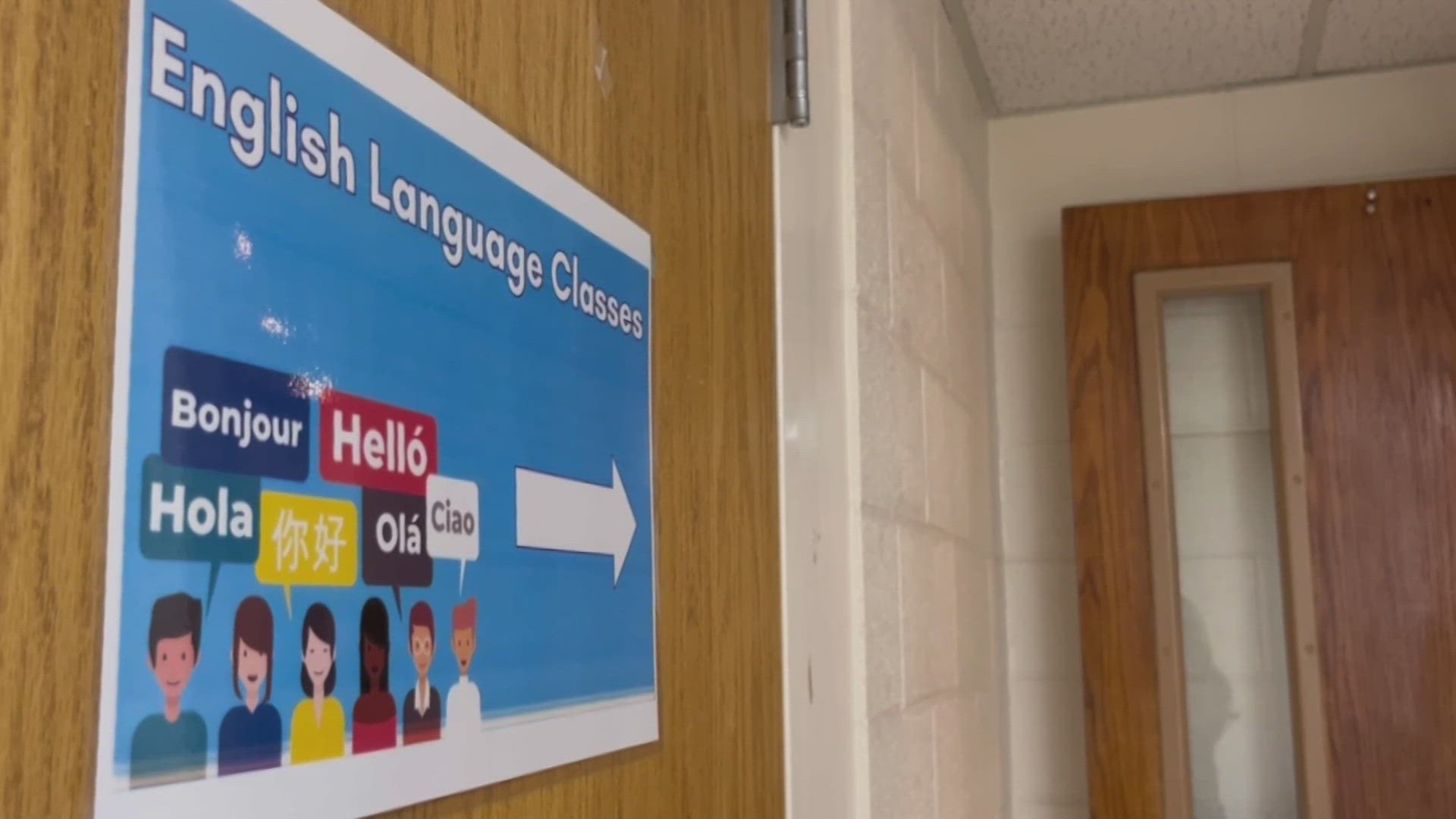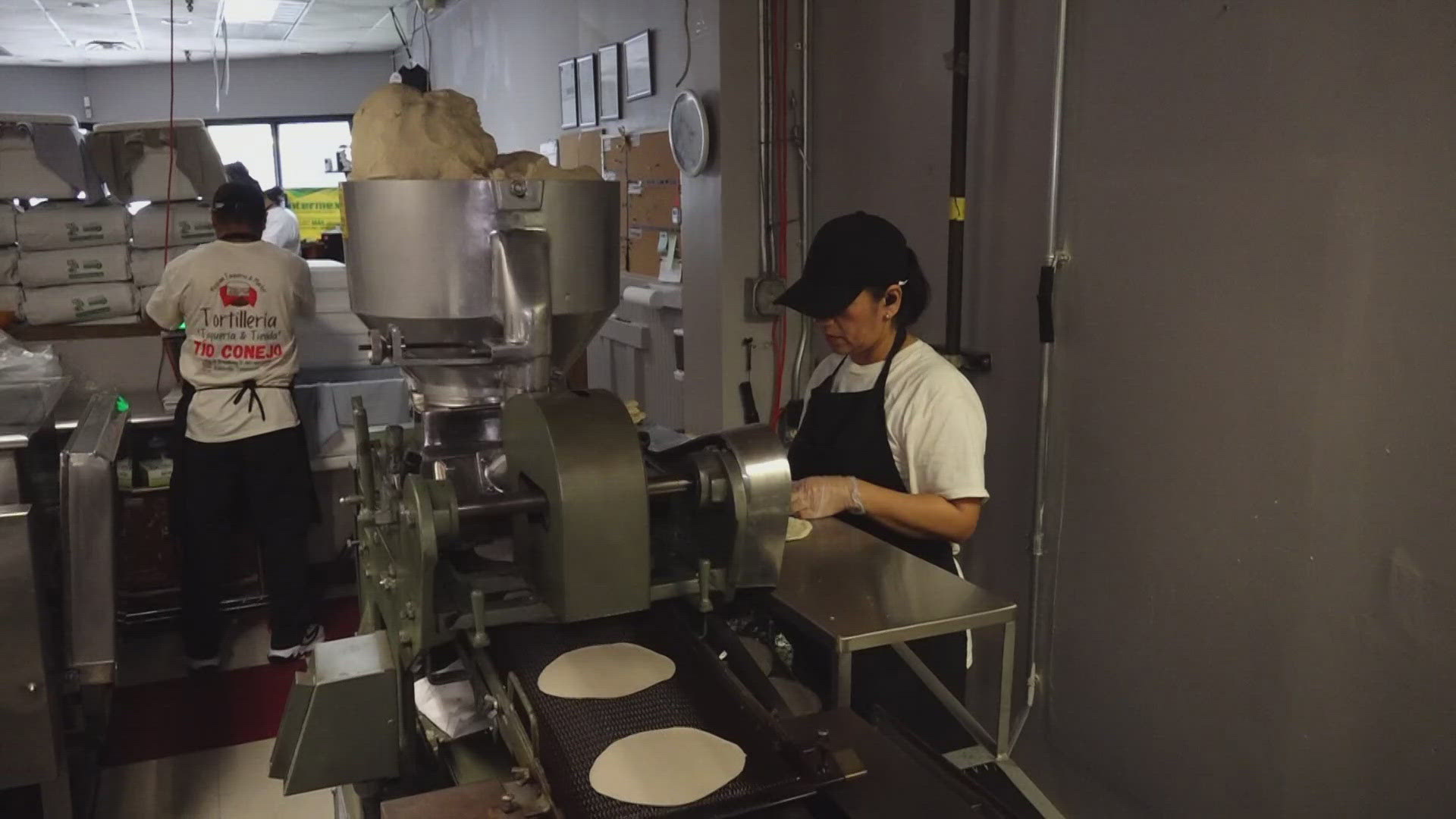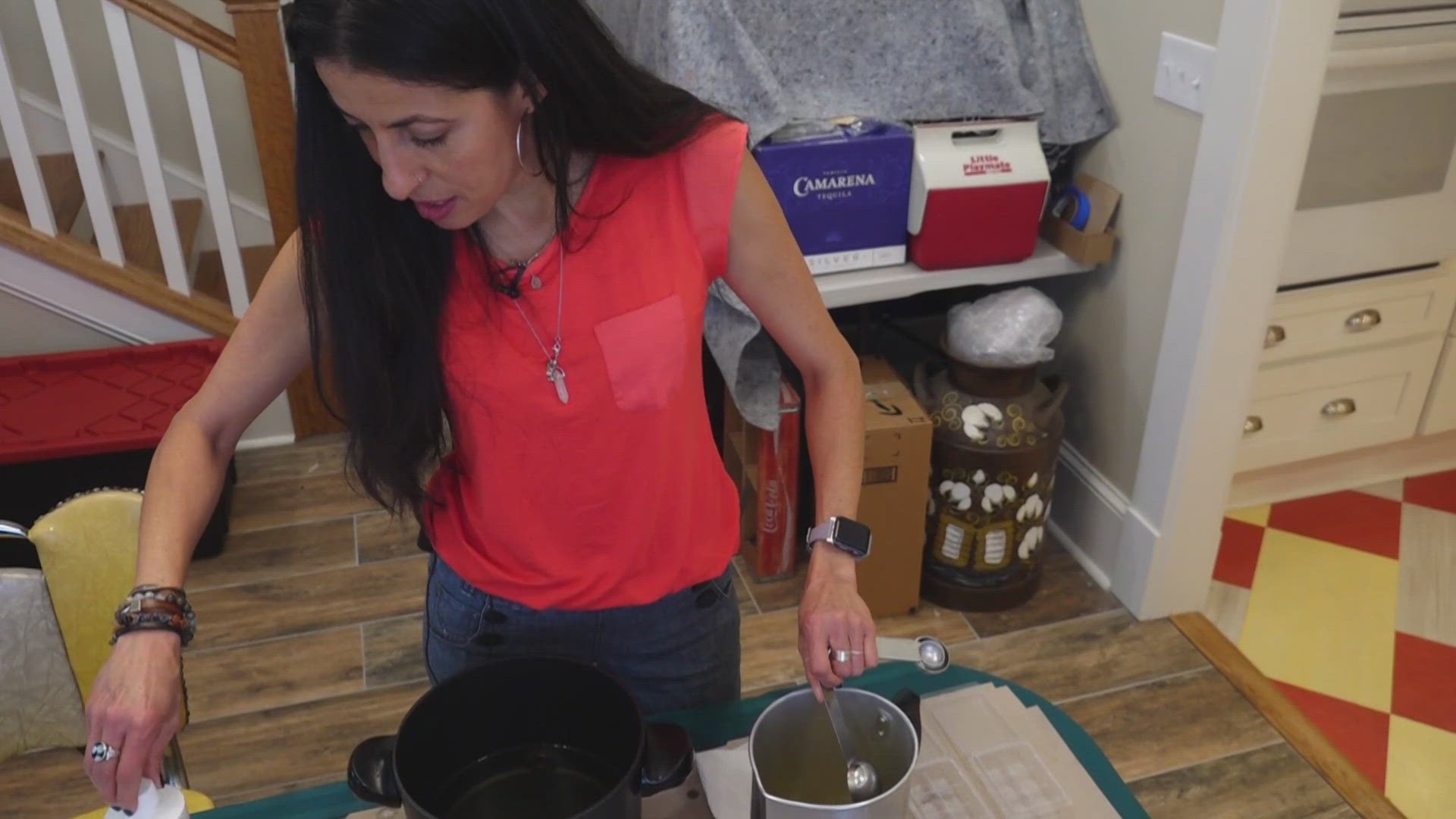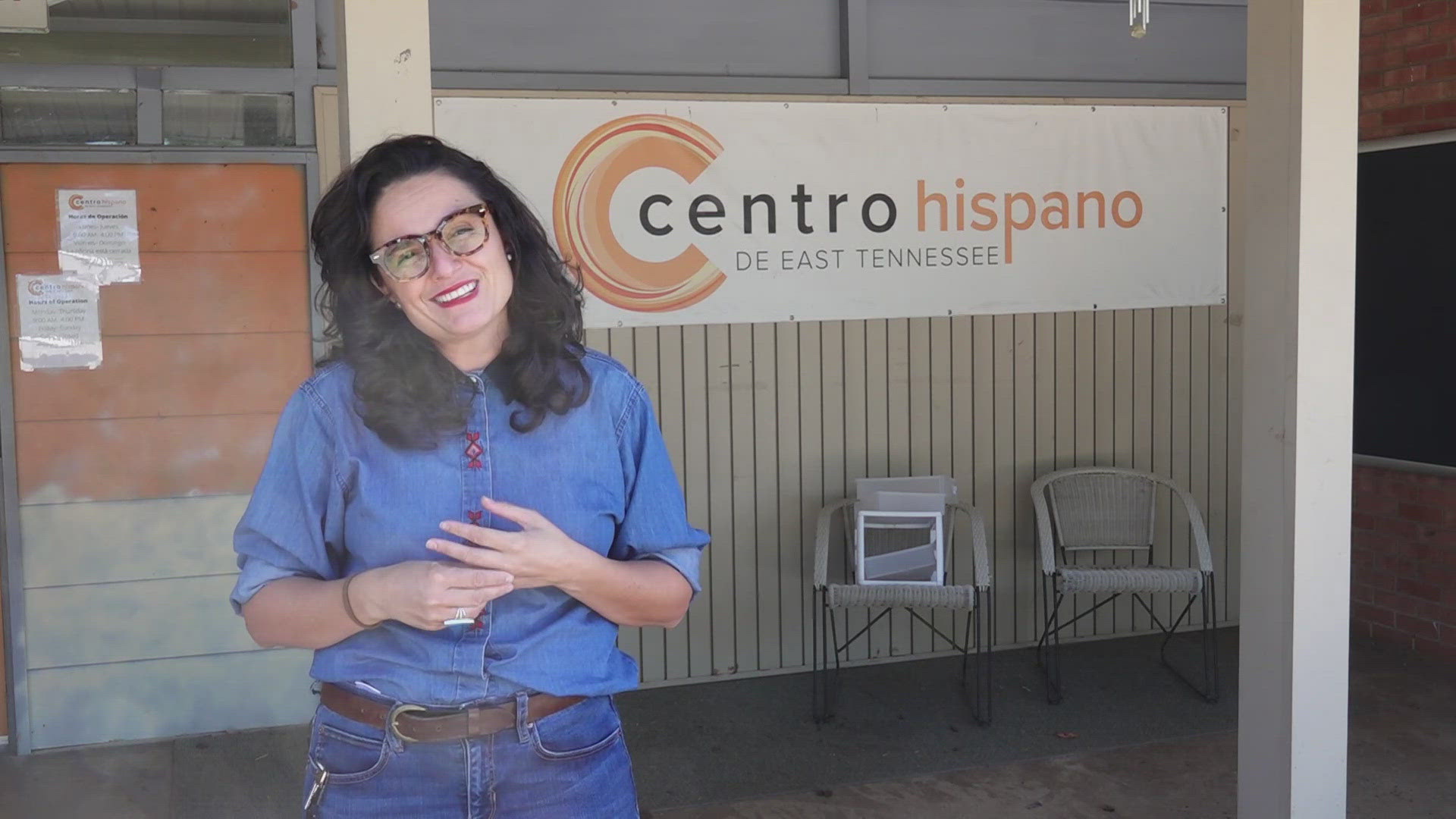Getting a 'sense' of Hispanic Heritage Month in East Tennessee
We used all five human senses to highlight and celebrate East Tennessee's Hispanic culture.

Hispanic Heritage Month honors and celebrates the contributions of people with roots and ancestors in Spain, Central America, South America and the Spanish-speaking nations of the Caribbean.
Hispanic Heritage Month began as "Hispanic Heritage Week" under President Lyndon B. Johnson in 1968. It was then expanded to a month by President Ronald Reagan when it was enacted into law on Aug. 17, 1988.
We're closing out Hispanic Heritage Month by getting a "sense" of what East Tennessee's Hispanic culture is like.
SIGHT How Cherokee Health Systems is working to care for underserved populations.
Here in Eastern Tennessee, Cherokee Health Systems (CHS) has 20 brick-and-mortar sites and two mobile clinics to serve 13 counties. The federally qualified health center serves a variety of communities, including the growing Hispanic population in our area.
The health center says 20% of its patients don’t speak English. Out of that, 80% speak Spanish.
“I have many dreams,” Azaide Labrador, the director of CHS’s interpretation department, explained about her vision. “We need more interpreters, more training, more translation, more of everything.”
Labrador came into CHS as a patient five and a half years ago. Soon after, she became a Spanish-English interpreter.
“It was kind of serendipitous,” she recalled.
Originally from Venezuela, Labrador sees firsthand how language can be a barrier for patients.
“You feel so vulnerable,” Labrador explained. “You feel like you are in a bubble, isolated, not heard and scared because you may have a lot of things to say about how you feel and not all of it can come across.”
Vice President of Medical Services Gail Reilly says she wants to combat that, hoping every patient feels like CHS is “their home.”
“We want to find the people that need help, that need us and get them in and give them as much of that wrap-around care as they need,” Reilly added. “We want any community, and the Hispanic community is one of those communities, to feel welcome here.”
Reilly has her sights set on providing care to underserved communities, including the Hispanic population, through brick-and-mortar locations and mobile clinics. She says part of that goal includes continuing to hire bilingual staff.
“We hire as many bilingual staff as we can so that we can speak to people in their language because that's something that makes you feel welcome, right?” Reilly noted. “We also want to be culturally sensitive and aware of whatever it is, backgrounds or thoughts about health care and how you access health care, we want to be aware of that as best we can. And so the more folks that we can bring into our staff here that really understand that the better we'll be able to serve these communities.”
To make staff aware, Labrador says she leads training to educate healthcare providers on cultural differences.
“There are factors that come from different cultures, not only the Hispanic one, that can affect our health,” Labrador explained. “For example, I'm going to talk about my own experience. I was not really taught about healthy eating and, you know, I ate a lot of carbs and it's just part of my culture and nutrition is not taught that great.”
It’s not just physical health conditions that can be impacted by culture and experience, Reilly explains.

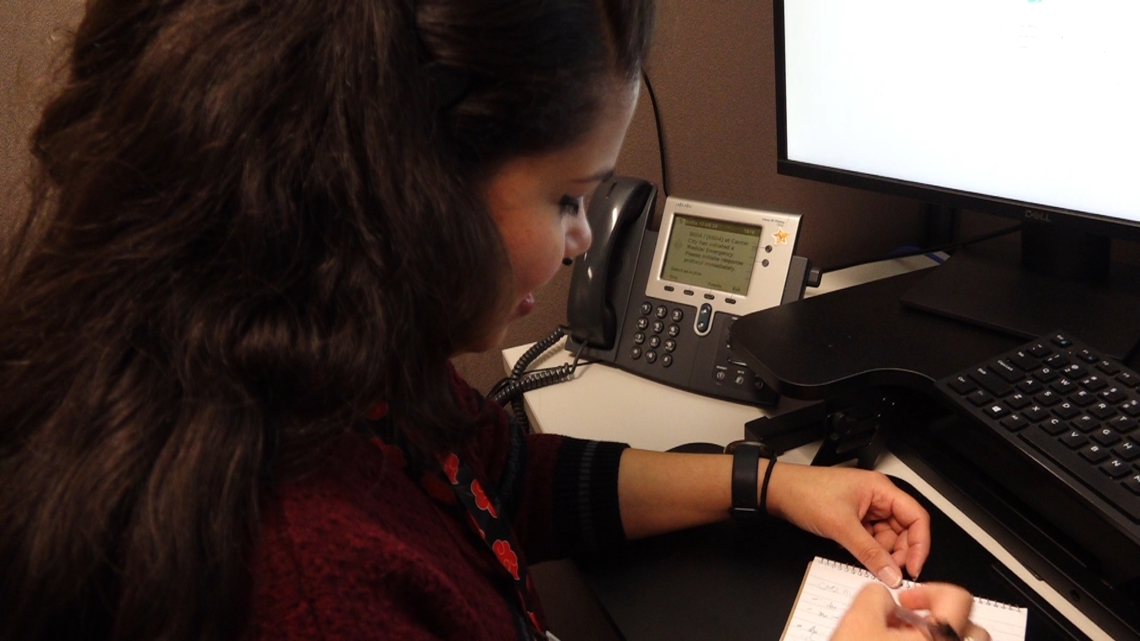
“The same thing with behavioral healthcare,” Reilly adds. “A Hispanic population may face different stressors than other populations. Our immigrant population certainly struggles with the trauma of immigrating to this country and we want to be there to meet them with those needs. Others have experienced great trauma before they came here and we want to be sensitive to that and help them with whatever the behavioral health needs might be.”
Through cultural humility training, diverse hiring practices and continued outreach centers, Labrador says the community health center’s future is bright as they work toward continuing to care for underserved populations.
“I dream that I don't know if it will be possible, would be to have an army of interpreters for them to interpret in person in all the clinics, to have an ESL interpreter, to have translation services,” Labrador smiled.
This helps not only the populations being served, Reilly said, but also the community as a whole.
“It's absolutely critical for a community,” Reilly explained. “I think about the infrastructure of a community are the people that make it thrive, that keep the economy going and keep the jobs going. And we all want to have the healthiest workforce possible, decrease absenteeism, make people be able to be successful and thrive and grow in their jobs. And so helping support them with good health, good access to health care, good access to behavioral health care is critical, I think for communities.”
So far in 2024, CHS says it’s served 14,760 Hispanic patients. CHS has services, including telehealth, available to people with and without health insurance. It also provides case management services to help with housing, food and employment.
SOUND From churches to schools, people across the area gather at nearly 40 locations every week to learn English.
Here in the Knoxville area, there are nearly 40 classes that meet every week to teach English to non-native speakers.
As the Hispanic population continues to increase in East Tennessee, many of those students are Spanish speakers.
“It's good, the class,” Rafael Lopez shared about the four weeks he’s spent in an English Language Learner (ELL) class. “I needed English, and I checked the web page and I found this church.”
A year after he moved to Knoxville from the Dominican Republic, Lopez started visiting Faith Lutheran Church every Monday night to practice his English.
“It’s important for work,” Lopez explained in Spanish. “If I can communicate, I can interact with more people.”
He’s getting that interaction now while learning from Melissa Horning.
“I don't know much about teaching English,” Horning said.
But as a former high school math teacher, Horning says she wanted to find a way to help.

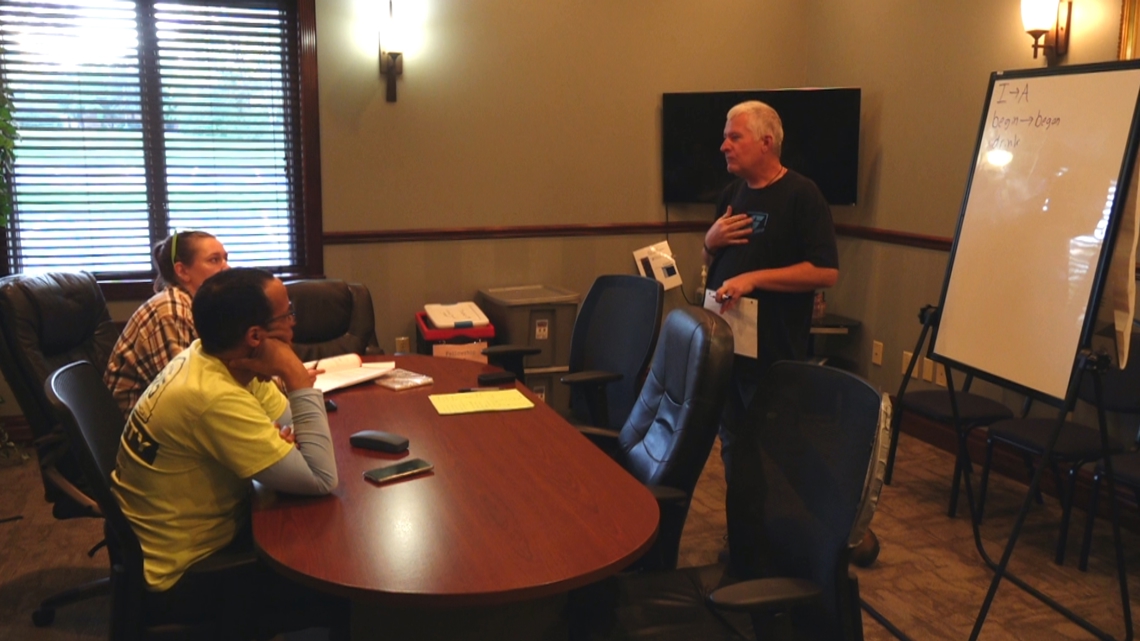
“Unfortunately I caught the burn out and decided I had to leave, but I still really wanted to do something in education and obviously helping people,” Horning explained.
When she heard about the new ministry through her church, Horning listened to the call. She took a class with Knoxville Internationals Network (KIN) to find out how to teach people like Lopez.
“I can talk with other people and it’s better,” Lopez said. “You can, we can get more friends. It’s good…You can join with more people.”
While Horning is helping teach Lopez, she’s learning herself.
“Personally, the more now that I've been working with this and kind of more opened my eyes in that way, I have seen definitely a lot more in Farragut of people who really aren't as proficient in English and kind of more paying more attention to that,” Horning shared.
Anyone interested in those classes can show up at Farragut Lutheran Church from 6:15 to 8:15 p.m. on Mondays.
TASTE Tío Conejo is known for its fresh corn tortillas, Mexican candy and authentic dishes served up seven days a week in Knoxville.
Tío Conejo has three sister locations in the region. From candy to spices to produce, you can find almost anything you need at this market. But what it’s known for is fresh corn tortillas.
“They're just 100% corn ground,” the tortilleria’s co-owner, Cielo Velasco, explained. “It started with my father.”
Velasco’s father opened the restaurant two decades ago after immigrating from Mexico where he ran a market.
“He thought, ‘Oh, I can just open a business,” Velasco explained about the business’s origins here in Tennessee. “And no, it was not like that. But, you know, he found out the right way how to do it and he did it.”
Now, Velasco works with her father, mother, brother and sister to operate this location in Knoxville, giving their new community a taste of home.
“We grew up and we wanted to be a part of it,” Velasco smiled, talking about the tortilleria and restaurant. “This is our life, so we're here 24/7 pretty much.”

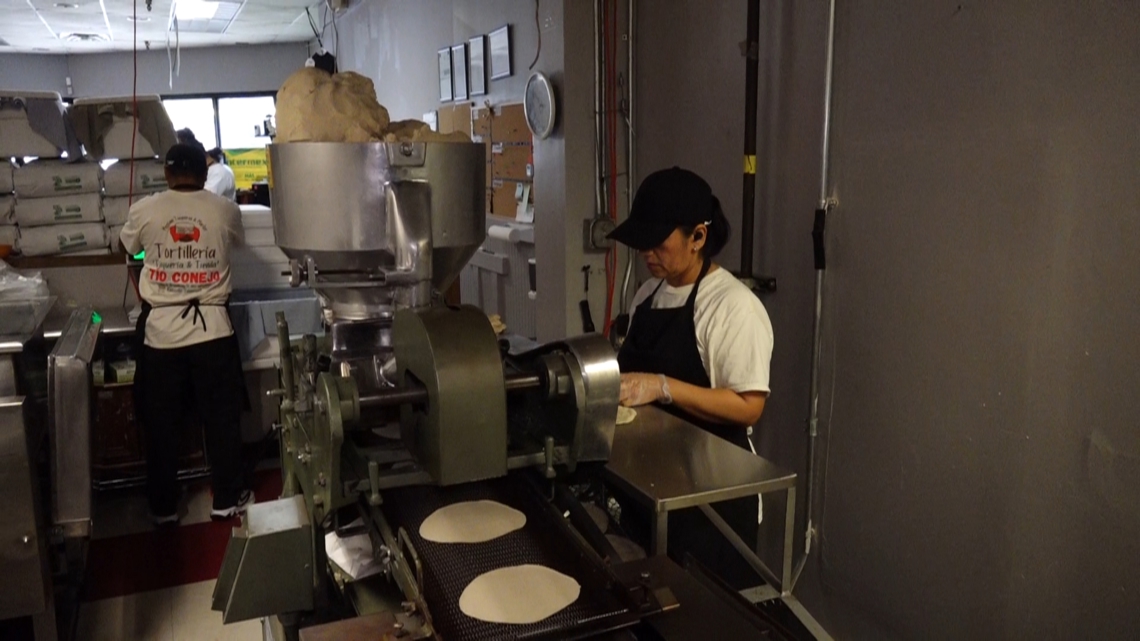
Open every day of the week, they sell traditional Mexican products and serve up dishes that Velasco says connect her with her heritage.
“I do feel a connection,” Velasco shared. “I would say it's mostly because of what he taught us. That's how I feel my connection with my culture.”
It’s a culture she and her family can share with the community.
“It's nostalgic. Personally, I've only been to Mexico one time and being there and being here, you can find a lot of the things that you can find over there here,” Velasco explained. “So it's very cool to be able to bring that to them, to the table.”
They’re providing guests with a taste of Mexico right here in Marble City. Velasco says besides their tortillas, their sugar skulls and tamale husks are the most popular items around this time of year.
SMELL Karolina Trejos, originally from Costa Rica, started K-Candles Co. in her kitchen 10 years ago. Now, she sells air fresheners, wax melts and more.
From autumn leaves to orange spice, one local candlemaker transports people to different places through the power of scent.
For Hispanic Heritage Month, Karolina Trejos shared about her experience in the local creative space.
“K-Candles actually started like a hobby to be honest,” Trejos reflected about the idea that sparked 10 years ago. “I just started creating and creating.”
Trejos' passion for mixing scents and pouring candles kept burning stronger and the community latched on, so she launched K-Candles Co.
“Every door that I knocked, there was a lot of nice people trying to help me,” Trejos smiled. “It's been amazing, really. I have a lot of people being so nice to me. I have never felt like I was, you know, out of place.”
Trejos says despite being one of the only Hispanic creators in the Knoxville community at markets in the area, she’s felt welcome from the very beginning.

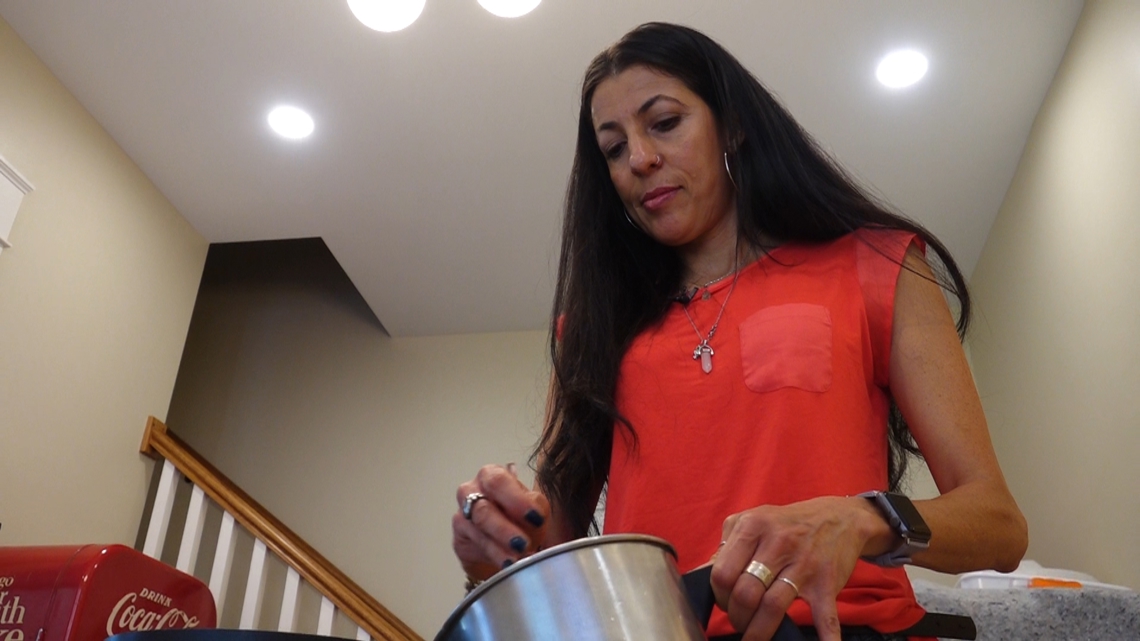
“I've been doing the markets for about six years now, and I have felt like I'm the only one with the accent here,” Trejos said.
She moved to Knoxville 17 years ago from San Jose after meeting her husband when he was in Costa Rica. “I don't see a lot of Hispanic people trying to get there,” she said, referencing markets. “I don't know if they don't think that they have the tools necessary to get the product and be more confident and be out there.”
Because she has found that confidence—and the help from local creators—Trejos says she’s happy to be a light for others.
“I like it. I guess it makes me feel special,” Trejos shared. “People are really nice over here. The southern hospitality really got to me.”
When it comes to her own memories, Trejos tells us the Maple Glazed Bacon candle reminds her of her grandma back home in Costa Rica. She says she’s connected with the community through the power of scent.
“I love connecting with people and I love when people come back and say, ‘This reminds me of my grandma. This reminds me of my late mom or this reminds me of a special time that I had in my life. And you just created all that in that scent and you brought it to me. So I need that candle again,” Trejos explained. “I love all the stories behind that.”
Trejos says that feedback she gets from customers lit a fire in her, motivating her to keep creating.
TOUCH The Tennessee Data Center predicts that the largest demographic increase will be among Hispanic Tennesseans. Centro Hispano is working to support that population. SalsaKnox Dance company over 15 years ago.
Right now, the Hispanic population is growing rapidly in Knoxville. The Tennessee Data Center predicts that the largest demographic increase will be among Hispanic Tennesseans, saying by 2040, the Hispanic population will comprise 9.5% of Tennessee residents.
As that community grows, we’re feeling the impacts. One organization is touching the lives of many Latinos in Eastern Tennessee.
“Any community is only as good as how well their whole community is doing,” the President and CEO of Centro Hispano de East TN explained. “Centro looks to help our Latino community really get to that place where they can thrive economically and educationally in our area.”
Originally from Honduras, Caballero moved to Knoxville from Texas eight years ago. In that time, she’s seen the Hispanic population grow.

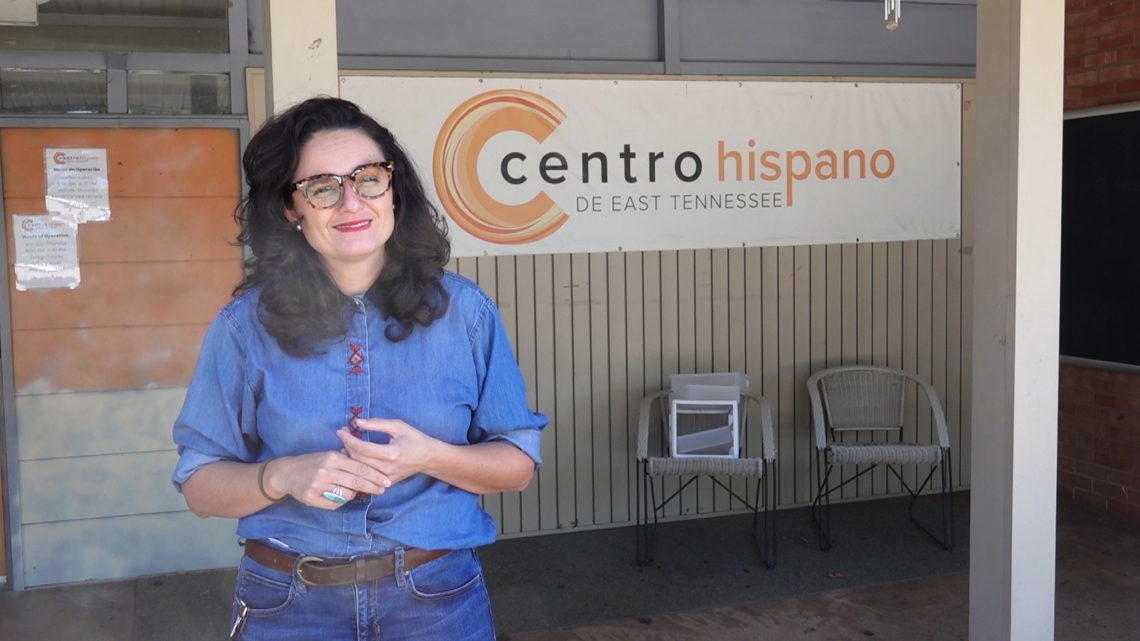
“Some of the ways we've seen the Latino community change even in the last eight years is the percentage of Latinos in the school system is over 10% now,” Caballero shared. “When I got here, it was under five.”
That growth in schools is also happening across the area. Between 2010 and 2020, the Hispanic population saw the most growth at just over 3% according to data from the US Census Bureau.
Caballero worked along with city and county leaders to encourage Hispanic residents to be counted in the census.
“Being counted helps our whole community: roads and libraries and so many social services,” Caballero described the significance. “Everyone needs to be counted in the census because that increases the funding that we're allowed to have as a city. And so we partnered with the city in the county and many organizations across the community to help raise awareness in the Latino community about why it was important to become part of the census.”
As the Hispanic community in the area grows, it’s touching all different aspects of the Eastern Tennessee region from the economy to the culture.
“We're buying homes, we're buying cars, we're purchasing, we're contributing to the local economy, we're paying our taxes, you know, like all these different things raise the standard for our community,” Caballero detailed. “Food and diversity and stories and life experiences. All of those things bring value as well to the community.”
It’s an impact Caballero wants to feel more moving forward.
“In the years to come, we're really looking forward to, you know, how are we fostering environments in which our small businesses, our community can actually achieve all the dreams that they want?” Caballero said. “I want to see more Latinos serving on boards. I want to see more Latinos running for office, right? There are so many different things that we still have to do. So there's a lot of exciting things coming up.”
As the Hispanic population grows, Centro Hispano is also growing. Right now, it’s transitioning into a new building with three times the square footage to continue serving the community.

